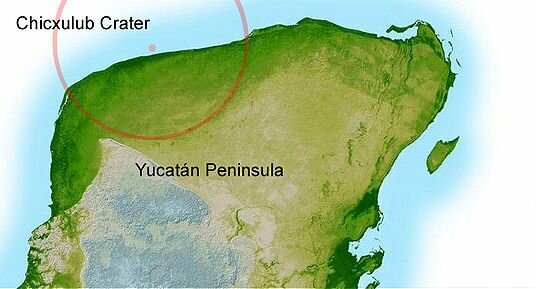
Meteor In Mexico Didn’t Kill The Dinosaurs
According to geologist and paleontologist Gerta Keller of Princeton University, the massive meteor that crash landed off the coast of Mexico approximately 65 million years ago hit the planet too early to have caused the dinosaurs’ downfall and was too tame to even hurt a protest, according to a new study published April 27, 2013 in the Journal of the Geological Society. Some researchers however maintain that the study’s geologists are needlessly wishing away the shooting star.
The located Mexico’s Yucatan peninsula has been heralded to be the smoking gun that establishes the hypothesis that an asteroid impact destroyed approximately two thirds of all the living species on the planet toward the close of the Mesozoic era; Keller believes she can now show that it didn’t lead to mass extinction.
Gerta Keller believes that the meteor didn’t kill the dinosaurs and in fact believes that it caused very little damage according to what she determined from the geological record. Keller and her colleagues (geologists) analyzed sandstone sediment in Northeastern Mexico, about 600 km from the actual impact crater, where debris from Chicxulub was found. Initially, they categorized the debris and determined that the asteroid impact actually predated the mass extinction at the Cretaceous-Tertiary boundary by about 300,000 years. When she inspected the debris more closely looking for fossil remains of almost microscopic protists she found what she feels is the proverbial “nail in the coffin” when it comes to the asteroid impact theory. Next Keller measured the diverseness of the quantity of marine zooplankton known as planktic foraminifera and confirmed that all of the 52 species that she found underneath the ejected Chicxulub particles were still found in the fossil record after the meteor impact. In comparison, only 13 of 44 species continued to be in the geological record following the Cretaceous-Tertiary mass extinction, exhibiting that the earlier asteroid impact didn’t kill off the protists or dinosaurs. Still, other knowledgeable geologists feel that the study is referring to an imperfect geological record that can’t be settled one way or another.